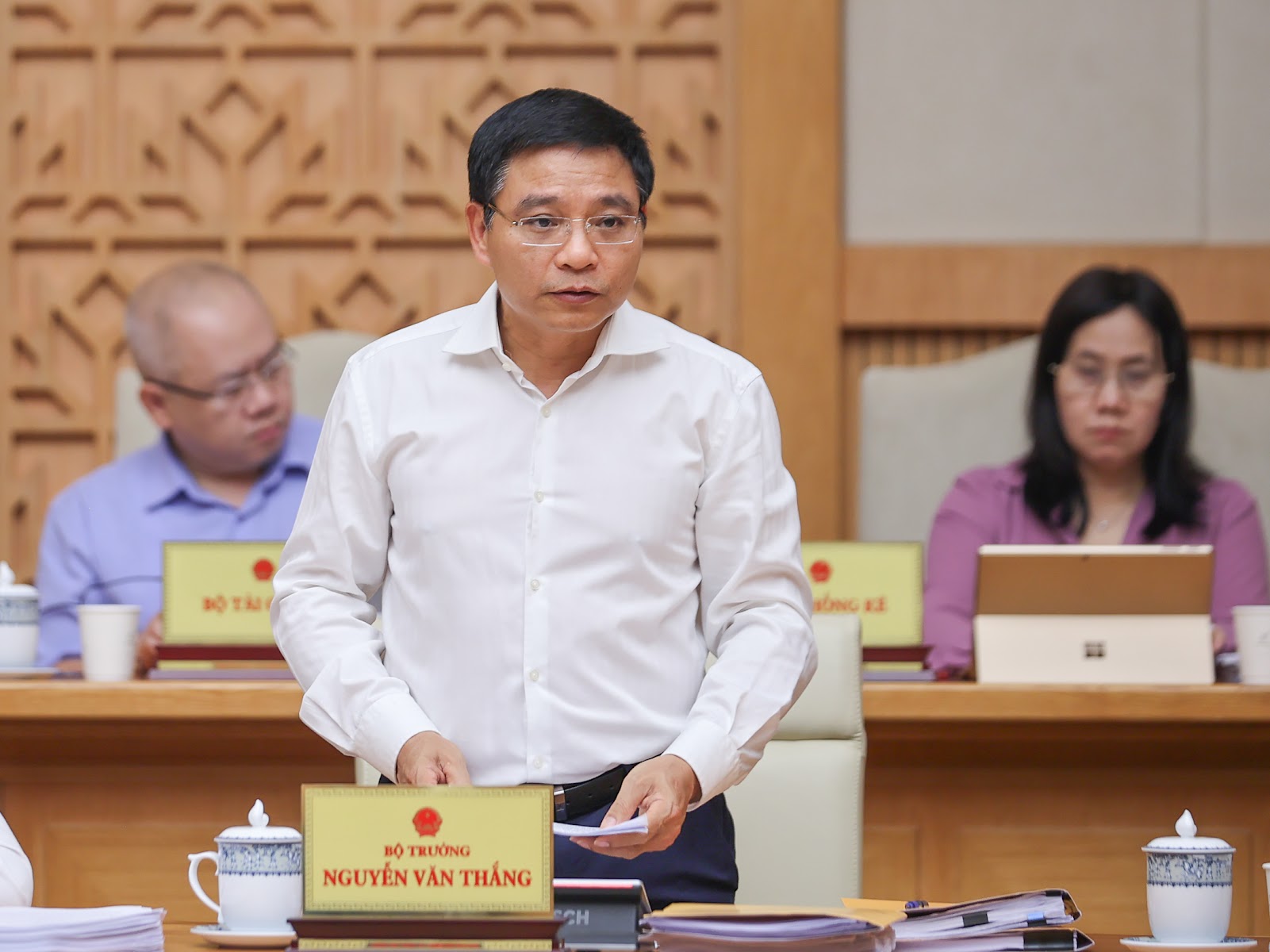Finance Minister Nguyen Van Thang made this announcement at a government meeting with localities on socio-economic affairs on 3/7. This was the first meeting of the government with 34 provinces and cities after the merger, with the two-level administration operating from 1/7.
Minister Thang reported strong economic growth, with many production, business, and budget indicators improving month by month and quarter by quarter. Specifically, the forecast at the end of May projected a 7.67% GDP growth for Quarter II. For the first 6 months, economic growth reached 7.31% compared to the same period last year.
Based on estimates up to the end of June, the GDP for the first half of the year could increase by an additional 0.2-0.3% compared to the forecast, reaching approximately 7.51-7.61%. According to data from statistical agencies, this is the highest growth for the same period in nearly 20 years.
In addition to growth, other indicators are also positive. The processing and manufacturing industry grew by 10% in the first 6 months, meeting the set target and marking one of the few years with double-digit growth since 2011. Exports increased by 14.4%, with a trade surplus estimated at 7.63 billion USD. Total retail sales of goods and consumer service revenue increased by 9.3%.
In the first half of the year, total registered foreign direct investment (FDI) reached over 21.5 billion USD, a 32.6% increase compared to the same period last year and the highest since 2009. The number of newly established and resumed businesses reached 152,700, 20% higher than the number withdrawing from the market. In June alone, nearly 24,400 businesses registered for establishment, the highest ever, with a total registered capital of nearly 177,000 dong.
 |
Finance minister Nguyen Van Thang speaks at a government meeting on 3/7. Photo: VGP |
Finance minister Nguyen Van Thang speaks at a government meeting on 3/7. Photo: VGP
Minister Thang also noted that in the first half of the year, the entire system made efforts and responded promptly and effectively to the situation, achieving high growth, "contrary" to the global economic downturn.
On 2/7, the negotiating teams of Vietnam and the US agreed on a Joint Statement on the framework of a reciprocal trade agreement. General Secretary To Lam had a phone call with US President Donald Trump, affirming the comprehensive strategic partnership between the two countries and discussing ways to enhance cooperation in various fields, especially high technology.
"This is an important outcome of the negotiations, creating confidence and expectations for businesses," Minister Thang acknowledged.
From 1/7, the two-level local government apparatus officially began operating in 34 provinces and cities nationwide. According to the Minister, this marks a new stage in the development of the administrative apparatus, completing the institutions and organization of the political system. He believes that the trust and pride of the people and businesses have been enhanced, creating new momentum for Vietnam to enter a new era.
However, Minister Thang also acknowledged that the economy is expected to continue facing many challenges in the coming period. Achieving the 2025 growth target remains challenging; the macro-economy is under pressure, especially in managing exchange rates and interest rates.
He proposed that ministries, sectors, and agencies closely monitor the activities of the two-level government to provide timely guidance, remove obstacles, and ensure smooth operation. The State Bank should manage monetary policy tools, interest rates, and exchange rates appropriately to support production and business, meet the capital needs of the economy, and maintain stability in the monetary and foreign exchange markets.
The Ministry of Finance will strengthen revenue management, striving to increase budget revenue in 2025 by 15% compared to the estimate, and save an additional 10% of the recurrent expenditure estimate in the final months of the year. Ministries, agencies, and localities should closely monitor price fluctuations of essential goods, promptly implement appropriate price management and control measures, ensure market stability, and prevent speculation and price manipulation.
Phuong Dung












